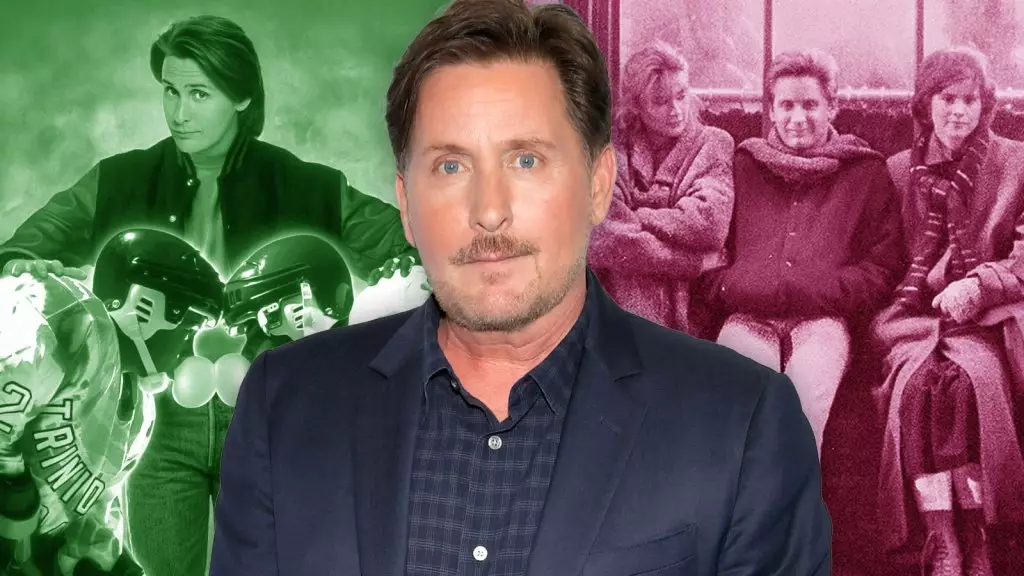Emilio Estevez, once the charming and uplifting Coach Bombay who inspired a generation through the Mighty Ducks franchise, is now unearthing a bitter truth in his recent interview — the fears of creative suppression by corporate giants like Disney. This retailing of a classic tale not only underscores Estevez’s nostalgic yearning for the camaraderie that sports can cultivate but also reveals how power dynamics in the film industry can stifle passionate voices. It’s astonishing how the spirits of creativity can be extinguished by mere contractual obligations and administrative gatekeeping.
A Sequel Left in Limbo
In this exclusive revelation, Estevez mentioned that he penned a script for “Mighty Ducks 4,” driven by the need to compensate for what he cautiously refers to as “the disasters” that plagued “Game Changers.” His concept — introducing an all-girls team in the professional women’s hockey league led by an evolved version of Coach Bombay — is so refreshing. It speaks to the shifting cultural landscape that demands representation and empowerment in male-dominated fields. Despite Estevez’s fervor, Disney’s resistance serves as a stark reminder that creativity too often bows to corporate interests. What’s worse is the implication that a sequel inspired by positive, progressive values risks being buried in the corporate bureaucratic void.
The Harsh Reality of Set Life
The journey to creativity isn’t always smooth, as Estevez demonstrates through his reflections on his experience filming “St. Elmo’s Fire.” The contrast between the nurturing guidance of director John Hughes and the “bully” behavior of Joel Schumacher is striking. Estevez’s recounting reminds us that the atmosphere on set can crucially impact an actor’s performance and emotional well-being. The casual dismissal of artistry to “have a good f***ing time” encapsulates an attitude that prioritizes the director’s ego over genuine collaboration and mutual respect. Estevez emerges from the turmoil not embittered but enlightened, vowing to foster a more encouraging environment should he ever assume the director’s chair.
The Fight for Artistic Integrity
This interview conveys a profound discourse on the challenges of maintaining artistic integrity amid tumultuous corporate interests. Estevez’s yearning to return to his roots in a meaningful sequel is underlined by a larger truth — the entertainment industry often prioritizes brand over artistry, leaving daring visions unfulfilled. The innovative leap from male-centric narratives to ones celebrating female empowerment is an act of courage that should be embraced, not stifled. Estevez stands as a figure calling out to the industry, challenging it to look beyond its outdated formulas and embrace a more varied narrative landscape.
In an era where cinema desperately needs diverse and authentic stories, the resistance of an esteemed franchise to evolve reflects a broader thematic paralysis. Estevez’s unwillingness to back down in the face of corporate indifference epitomizes a critical juncture for both him and the industry itself, where the next generation of creators must learn to navigate not just their narratives but the very frameworks attempting to shape them. Ultimately, it presents a formidable challenge — can art flourish in an environment dominated by headcount and profitability? As the industry continues to grapple with this question, the hope remains that voices like Estevez’s will strike a chord, reverberating through the ages.

Leave a Reply